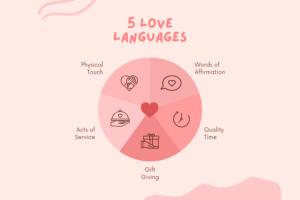Living with an anxious partner can pose unique challenges, demanding empathy, understanding, and proactive measures to create a supportive environment for both your partner and yourself. In this comprehensive guide, we’ll explore practical strategies to assist your anxious spouse while maintaining your own mental well-being. From addressing symptoms to fostering open communication and encouraging professional help, let’s embark on a journey to nurture both hearts.
How To Support Your Anxious Partner — A Guide to Nurturing Both Hearts
Living with an anxious partner demands compassion, understanding, and proactive measures to maintain both their mental health and yours. In this comprehensive guide, we will delve into practical strategies to assist your anxious spouse while safeguarding your own well-being. By addressing symptoms, promoting open communication, and advocating for professional help, you can navigate the challenges of living with an anxious partner with empathy and resilience.
Start by Addressing Symptoms
Recognizing and understanding the symptoms of anxiety is the foundational step in providing meaningful support. Anxiety can manifest in various ways — from physical restlessness to emotional turmoil. By acknowledging these signs, you create a solid groundwork for empathy, enabling you to better assist your partner in managing their anxiety.
Understanding the nuances of anxiety allows you to respond with empathy and support, fostering a sense of security in your relationship.
In practice, this might involve observing when your partner seems most anxious and noting specific behaviors or triggers. For example, do they exhibit signs of restlessness during social events or experience heightened anxiety in specific situations? Understanding these nuances can guide your approach in offering support tailored to their needs.
Don’t Minimize Feelings
Avoid the temptation to minimize your partner’s feelings. Phrases like “just relax” or “it’s not a big deal” can unintentionally invalidate their emotions. Instead, practice active listening and validate their feelings without judgment. Creating a safe space for them to express their concerns fosters an environment of trust and understanding.
By acknowledging the validity of your partner’s emotions, you lay the groundwork for effective communication and emotional connection.
To implement this, actively engage in conversations where you not only listen but also ask follow-up questions to delve deeper into their feelings. For instance, if your partner expresses worry about a specific situation, inquire about the specific aspects that concern them. This shows that you are genuinely interested in understanding their perspective.
Help Your Partner Seek Treatment — And Participate When You Can
Encourage your partner to seek professional help for their anxiety. Whether through therapy, counseling, or medication, a mental health professional can provide valuable tools and coping mechanisms. Demonstrate your commitment to their well-being by offering to attend sessions together, thereby strengthening your bond and reinforcing your support.
Actively participating in your partner’s journey to seek treatment not only shows your dedication but also fosters a sense of togetherness in facing challenges.
In supporting your partner through treatment, consider researching and suggesting specific therapeutic approaches that may align with their needs. For example, cognitive-behavioral therapy (CBT) or mindfulness techniques can be effective in managing anxiety. Discuss these options openly and encourage your partner to explore what feels most comfortable for them.
Encourage — Don’t Push
While encouragement is crucial, it’s equally important not to push your partner beyond their comfort zone. Gentle encouragement, paired with patience, allows your partner to take gradual steps toward managing their anxiety. Avoid pushing them into situations that may heighten their stress levels, and celebrate small victories together.
Balancing encouragement with sensitivity empowers your partner to navigate their anxiety at their own pace, fostering a sense of accomplishment.
In daily life, this might involve acknowledging and celebrating small achievements, such as attending a social event or trying a relaxation technique. Provide positive reinforcement without creating pressure, reinforcing the idea that progress is a journey, not a destination.
Cultivate a Life Outside Your Partner’s Anxiety
Encourage your partner to engage in activities that bring them joy and fulfillment. Building a life outside of anxiety-related concerns is essential for their overall well-being. Whether it’s pursuing a hobby, spending time with friends, or exploring new interests, helping your partner find joy beyond anxiety contributes to a more balanced and fulfilling life.
Cultivating a life beyond anxiety not only enhances your partner’s happiness but also strengthens the foundation of your relationship.
Suggest specific activities based on your partner’s interests, and actively participate in these endeavors together. This can include joining a fitness class, exploring a new hobby, or planning social outings. By fostering a positive and engaging environment, you contribute to a sense of normalcy and joy in your shared experiences.
Help Your Partner Remember That the Goal is to Manage Anxiety — Not to Get Rid of It
Remind your partner that the goal is not to eliminate anxiety but to manage it effectively. Setting realistic expectations can reduce frustration and encourage a proactive approach to coping mechanisms. Focus on building resilience and coping strategies, emphasizing progress over perfection.
Shifting the focus from elimination to management empowers your partner and promotes a positive perspective on their mental health journey.
Incorporate mindfulness techniques into your daily routine as a couple. Whether it’s practicing deep breathing exercises together or engaging in mindfulness meditation, these activities can create a shared sense of calmness and reinforce the idea that managing anxiety is an ongoing, collaborative effort.
Care for Your Own Mental Health
Supporting an anxious partner can be emotionally demanding, so it’s crucial to prioritize your own mental health. Establish self-care routines, seek support from friends or a therapist, and ensure you have outlets for stress relief. By taking care of yourself, you’re better equipped to provide the support your partner needs.
Prioritizing your mental health is not selfish; it’s a necessary step in maintaining a strong and supportive relationship.
Consider integrating self-care activities into your routine that align with your personal preferences. This could involve setting aside time for hobbies, practicing mindfulness, or engaging in regular exercise. Communicate with your partner about your own needs and boundaries, reinforcing the importance of mutual care and understanding.
Self-case blog post : Don’t Complicate It; Simplified Self-Care for Busy Lives
Gently, When the Time is Right, Communicate the Impact You Experience Around the Anxiety
When the time is right, communicate openly about the impact their anxiety has on you. Use “I” statements to express your feelings without placing blame. This dialogue fosters understanding and allows both partners to work collaboratively towards a healthier, more balanced relationship.
Open and honest communication strengthens your connection, fostering an environment where both partners feel heard and understood.
Initiate conversations with empathy, expressing your feelings in a supportive manner. For example, you might say, “I’ve noticed that during anxious moments, I feel a bit overwhelmed. Can we talk about how we can navigate these situations together?” This approach encourages collaborative problem-solving and reinforces the idea that you are a team working towards shared well-being.
The Power of “I Statements” in Communication
Effective communication is at the heart of any healthy relationship, especially when dealing with anxiety. “I statements” are a powerful tool that can transform the way you express your feelings and concerns. Instead of using accusatory language that might make your partner defensive, “I statements” allow you to share your experience without assigning blame.
For example, instead of saying, “You always make me feel stressed with your anxiety,” you can reframe it using an “I statement”: “I feel overwhelmed during anxious moments, and I’d like to discuss how we can navigate these situations together.” This approach invites collaboration and helps your partner understand your perspective without feeling attacked.
Additional Resources for Support
Navigating the complexities of living with an anxious partner often requires additional resources. Here are some valuable resources that can provide support and guidance:
- Books:
- “The Anxiety and Phobia Workbook” by Edmund J. Bourne
- “The 5 Love Languages” by Gary Chapman

- Online Platforms:
- Anxiety and Depression Association of America (ADAA)
- National Institute of Mental Health (NIMH)
- Therapy Apps:
- BetterHelp
- Talkspace
Conclusion: In conclusion, supporting an anxious partner is a collaborative effort that requires patience, understanding, and ongoing communication. By addressing symptoms, encouraging professional help, and prioritizing self-care, you can navigate the complexities of anxiety together. Remember, the goal is not to eliminate anxiety but to manage it effectively. With open communication and a commitment to each other’s well-being, you can build a resilient and fulfilling relationship, fostering a sense of security and joy for both partners.





